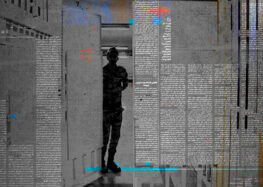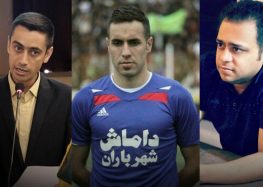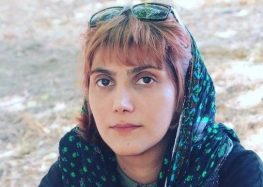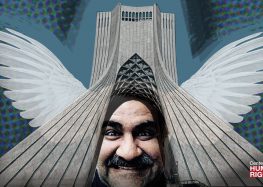Pro-Rouhani Newspaper Suspended in Hardline Campaign Against President
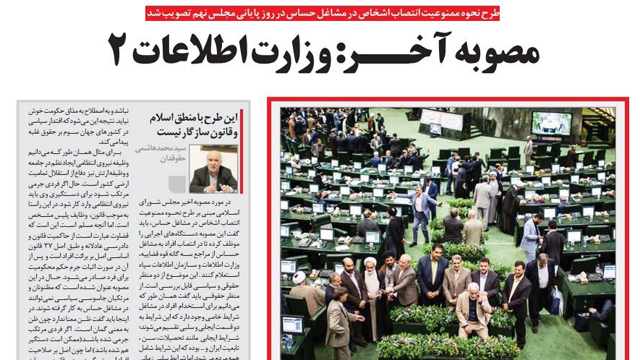
A week after Tehran’s hardline chief prosecutor announced he would be suing the editor-in-chief of the major reformist newspaper Ghanoon, the paper has been suspended.
After receiving the order by Tehran Chief Prosecutor Abbas Jafari Dolatabadi, Ghanoon announced on June 20, 2016 that it would be shutting down following a complaint by the Islamic Revolutionary Guards Corps (IRGC) accusing the paper of “defamation and publishing falsehoods with the intent to cause public anxiety.”
The suspension of the pro-Rouhani government paper, one day after President Hassan Rouhani said he was “proud of freedom of the press” in Iran, is part of a broader campaign by hardliners to degrade the more moderate president’s popularity and undermine his authority. The paper’s journalists have also argued Ghanoon is being punished for the content of its articles.
“Journalists who work for Ghanoon say they believe the paper was suspended primarily because of two articles,” Iranian media analyst Shahram Rafizadeh told the International Campaign for Human Rights in Iran.
“One was a commentary published on February 14 [2016] by [former diplomat and writer] Fereydoun Majlesi, who criticized the way the US navy sailors were detained [by Iran in January 2016 in the Persian Gulf] and paraded on [state] TV, which reminded viewers of the violent [propaganda] videos from ISIS [the terrorist group known as the Islamic State].”
“The other article was an important report about the last legislation passed before the end of the ninth parliamentary session, which required security agencies to vet job applicants for sensitive government positions,” said Rafizadeh. “The report predicted that the new law would formally view the IRGC’s Intelligence Organization in parallel with the Intelligence Ministry [which would be unconstitutional].”
The ongoing power struggle between Iran’s Intelligence Ministry and the Revolutionary Guards is a taboo topic for any media outlet based in the country.
In his order against Ghanoon, Dolatabadi referred to Article 156 of Iran’s Constitution, which states: “The judiciary is an independent power, the protector of the rights of the individual and society, responsible for the implementation of justice, and entrusted with the following duties: investigating and passing judgment on grievances, violations of rights, and complaints…[and] taking suitable measures to prevent the occurrence of crime and to reform criminals.” But the judicial order did not specify which article or other content had triggered the action.
On June 14, 2016, Iran’s Prisons Organization, which operates under the Judiciary, announced it would be suing Ghanoon Editor-in-Chief Mahnaz Mazaheri for the content of the feature piece “24 Damn Hours,” published on June 11. The article exposed a money-making operation run through the Greater Tehran Penitentiary as well as the prison’s poor living conditions and ill treatment of detainees.
Anti-Rouhani Campaign
The suspension of the major reformist newspaper comes at a time of growing intimidation and prosecution of journalists and other members of the media, which has not only focused on the reformist press but has now also targeted centrist journalists with close ties to the Rouhani administration. For example, the journalist Afarin Chitsaz who wrote for the Rouhani administration’s official daily, Iran, was recently sentenced to 10 years in prison.
Rafizadeh said the campaign is part of a wider “mosaic containment project” to undermine the Rouhani government’s authority on all fronts.
“The extremist opponents of the government are concentrating their efforts on creating a crisis in various areas,” he said. “You can see these efforts in the cultural and political field, in film industry, books, and theater as well as the implementation of the nuclear deal…and unfortunately, Mr. Rouhani has not and is not taking the necessary actions as president [to stop them].”
At an Iftar (the meal eaten by Muslims after sunset during Ramadan) banquet on June 19, 2016, Rouhani spoke of “how proud we are about the freedom of the press, media and the pen in Islamic Iran.” But members of the press have been facing increasing persecution since his election in 2013.
Imprisoned reformist journalist Ehsan Mazandarani, who has been repeatedly hospitalized from hunger strikes against his seven-year prison sentence, recently wrote to the supreme leader about the torture he suffered during interrogations.
Mazandarani was arrested at the same time as three other journalists by the Revolutionary Guards’ Intelligence Organization in Tehran on November 2, 2015. All except one of the detainees were issued long prison sentences on April 27, 2016.


